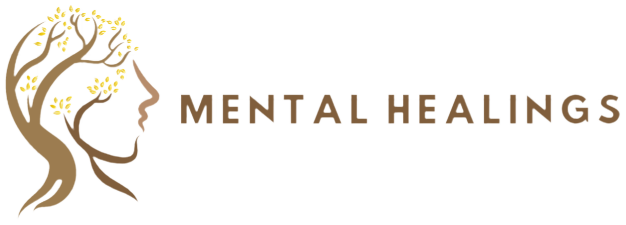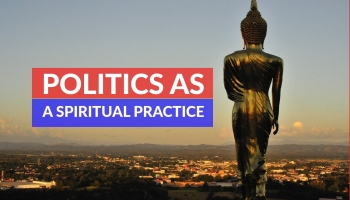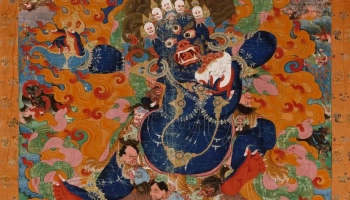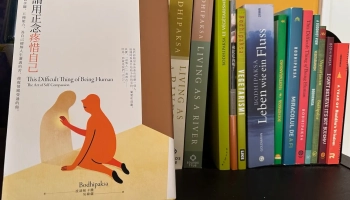
[ad_1]

Isaac of Nineveh, who is also known as Abba Isaac and as Saint Isaac the Syrian, was an important figure in the 7th century Christian church. He is most remembered for his writings on asceticism.
One thing he wrote was,
Blessed is the man who knows his own weakness, because this knowledge becomes to him the foundation, root and beginning of all goodness.
These words are a powerful reminder of the importance of humility.
Humility is where we’re not afraid to admit our weaknesses to ourselves or to others. Humility involves self-awareness, because we need to know what our weaknesses are before we can admit to them. Humility requires honesty, in the form of a willingness to be open about who we are. And it requires trust: knowing that it’s okay to reveal our weaknesses to ourselves and to others.
Understanding our weaknesses helps us compensate for them
If we understand our weaknesses we are able to compensate for them. Here’s a minor example. Let’s say I’m aware that I have a weakness for a particular kind of snack (that would be potato chips). I can avoid walking down the supermarket aisle in which they’re kept. I can ask my partner not to buy them for me. Knowing my weakness helps me to avoid its pitfalls.
Or let’s say I know I tend to be unkind when replying to someone who’s criticized me. I can be mindful that it’s wise to wait until I’m in a calm, clear, and kind state of mind before replying.
A weakness understood is a weakness we can work around.
You might notice that I talk about strategies for overcoming weaknesses. That’s very deliberate, because I find that the concept of will-power is overrated. I’ve written about this elsewhere, for example with regard to social media addiction. Rather than simply try really, really hard not to get sucked into social media, I found it much easier to create barriers between me and the object of my craving.
For example I could:
- Not keep my phone by my bedside so that I didn’t pick it up first thing in the morning.
- Have my phone switched off overnight so that I was more conscious about turning it on.
- Turn off notifications so that I’m less tempted to open an app.
- Not have social media apps on my phone at all, so that I had to access these services through a browser.
- Block social media sites in my phone’s browser, so that I could only access them on my computer.
Those kinds of strategies helped me break my addictions to Facebook and Twitter (neither of which I use any more). This successful strategy was not based on willpower. It was based instead in an awareness of my weaknesses combined with a strategic approach to overcoming them.
Expressing our vulnerability leads to intimacy
Being aware of our own flaws helps us to develop more trust and intimacy in our closest relationships. A few years ago I realized that some traumatic early childhood incidents had left me with an over-sensitivity to any hint that I didn’t matter to other people. For example, if I greeted my partner when I came home, and she didn’t reply (usually she was absorbed in something) I’d get hurt and irritated. The same would happen if I’d cooked a meal for us and she didn’t comment on whether she liked it or not. And since she spent a lot of time living on her own, she habitually turns lights off when she leaves a room, even if I’m still in there. I can get very reactive when I’m suddenly plunged into darkness.
Also see:
Realizing that my reactivity went back to early childhood incidents helped me to be more understanding of it. It allowed me to practice self-empathy. I could see that in being reactive it wasn’t that I was a “bad person.” It wasn’t that I was “failing” at being a mindful and kind partner, or at being a Buddhist. It’s just that my mind was wired at an early age to be scared of being ignored by those closest to me.
Knowing my weaknesses makes it easier for me to forgive myself. It’s also easier for my partner to be forgiving of me, because I can tell her, “I”m sorry I snapped at you; my sensitivity about abandonment got triggered when you switched the light out without checking whether that’s what I wanted.” She can understand that.
Revealing our weaknesses to each other helps us to be more understanding and empathetic to each other. We no longer see each other as “bad partners” but as flawed human beings who want to be kind to each other in the face of our internal obstacles. Revealing our flaws to each other, we learn to love each other’s flawed nature.
Understanding our weaknesses helps us to be tolerant
Weaknesses are part of the human condition. We all have them. Weaknesses are not “sins” that condemn us. Recognizing this, we free ourselves from the burden of pretending to be something we are not. We no longer feel the need to defend our bad behaviors. We can just explain them.
Recognizing our own weakness makes it easier for us to be tolerant of others’ weaknesses as well. We no longer try to hold them to an impossible standard. We understand, in Voltaire’s words, that “We are all formed of frailty and error.” And therefore, as he enjoins us (continuing his train of thought) “let us reciprocally pardon each other’s folly.” We can recognize that we are all doing a difficult thing in living this human life. Knowing this, we can support each other rather than try to make life even harder.
When other people mess up, as they will, we can recognize that they’re not fundamentally different from us. We all have brains that misunderstand things. We all have conditioning that leads us to over-react to certain events. We all contain selfish craving, ill will, and confusion. These are what we’re working with, and our tools for working with them are very imperfect, so that changing ourselves isn’t always easy.
Accepting our weaknesses helps us to see things as they really are
One of the central teachings of Buddhism is the concept of anatta, or not-self. Sometimes people translate this as “no self,” but the Buddha never said that there was no self. He even said that holding the view that there was no self was a source of suffering. When he talked about anatta, he pointed to many aspects of ourselves — our perceived physicality, our feelings, our thoughts, our emotional habits, and even our consciousness — and says we should regard these as “Not mine; not me; not my self.” What he encouraged us to do was to stop trying to define who we are.
Many of us tend to assume that our faults and weaknesses define us. In many people’s way of thinking, having a flaw or weakness — some habit that causes suffering to oneself or others — means that there’s something wrong with us. They think that they have a self that’s flawed: that there is something fundamentally wrong with them. This is shame, in the sense that psychologists use the term — meaning that we believe we are unworthy because of something we’ve done, of because of some trait we possess. We don’t just see the trait as being unhelpful or harmful — we see ourselves as being fundamentally bad because we contain it.
This belief that our flaws and weaknesses define who we are can lead to us trying to conceal what we’re really like. We become dishonest, trying to hide parts of ourselves from others, and even from ourselves. When our faults do slip out into the public eye we try to rationalize them or explain them away, perhaps by blaming others (“It was you that made me angry”).
The Buddha’s teaching of anatta — not-self — suggests that there is no permanent, unchanging self or soul within us. Rather, what we perceive as the self is an ever-changing collection of physical and mental elements. This means that who we are is not fixed, but is indefinable. It is something that is different in each moment. We can never define ourselves. We can’t define ourselves by our weaknesses; they are not intrinsically who we are. We can’t define ourselves in terms of anything.
Accepting our weaknesses is part of the process of opening up to the reality that we don’t have an unchanging “self” with fixed characteristics.
Accepting weaknesses doesn’t mean being passive
Accepting our weaknesses means just what I’ve said: that we see them as facts to be taken into consideration, and as things we need to work with.
As I’ve explained, we can work with them by:
- Observing our patterns of reactivity, and gently letting go of them.
- Being conscious of weaknesses and learning how to compensate for them.
- Being honest about them.
- Relating to them with more compassion and understanding, so that we don’t torture ourselves.
- Using self-awareness to help us understand how they create suffering in our lives.
At the same time as we’re doing all these things, we can be cultivating skillful qualities of wisdom, compassion, and equanimity.
We’ll never get rid of our flaws entirely. Life etches them deeply into the structure of our brains, and I consider the notion of even the “perfect Buddha” being as being a myth. (He was only perfect insofar as he was completely free of selfish craving, ill will, and delusion. He wasn’t omniscient and he sometimes made mistakes.) But we can’t get rid of our weaknesses entirely.
And we don’t have to. Accepting our weaknesses, confessing and explaining them to others, forgiving ourselves for having them, getting to the point where we can stop them from causing major suffering for ourselves and others, and above all continuing to develop skillful qualities alongside them; that’s enough. That’s enough for us to live lives that are meaningful, joyful, and beneficial for the world at large, and for those who we’re closest to.
But the first step is knowing our weaknesses. As Isaac of Nineveh points out, this knowledge becomes “the foundation, root and beginning of all goodness.”
Wildmind is an ad-free, community-supported meditation initiative, supported by sponsors. If you find this website helpful, you’ll love the access that Wildmind’s sponsors get to the meditation courses and other resources that I make available to them. Click here to learn more.
[ad_2]
Source link






